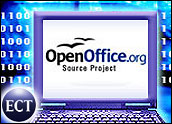
Although The SCO Group and its former investor, BayStar Capital, seemed to have resolved their differences in June, a new flare-up has occurred, resulting in threats of legal action toward SCO.
The latest dispute revolves around licensing opportunities available in the SCO source program.
In October 2003, BayStar had arranged a US$50 million investment in SCO, then recently sought to get its money back. The tussle seemed to be decided when the two companies agreed on a plan that would allow SCO to buy back all the preferred shares owned by BayStar. According to the arrangement, SCO would pay approximately 2.1 million shares and $13 million in cash to BuyStar.
On Friday, SCO noted that it had bought the shares as planned, but BayStar countered by commenting that the transaction was incomplete due to a dispute.
According to SCO, the main sticking point in the debate is the SCO source program, a vehicle for selling intellectual property. BayStar feels that SCO has made inconsistent statements about the licensing opportunities available in SCO source, while SCO has said that its disclosures were accurate.
Turn of Events
Neither company is commenting directly on the situation, but statements have been made showing that disagreements still exist.
On Friday, SCO noted that the repurchase transaction was officially closed as of July 21. But BayStar released a statement saying the transactions have not closed. It went on to read: “BayStar intends to file an action requesting a declaratory judgment with respect to its rights under the Stock Purchase Agreement.”
This is a far cry from just six weeks before, when BayStar’s managing partner, Larry Goldfarb, issued a statement that praised SCO, saying that the investment company was “extremely satisfied” with SCO’s performance in cash management plans, new initiatives, management of the ongoing litigation with IBM and other firms, and plans for improving the business. SCO was also complimentary at the time, noting that it appreciated BayStar’s public support.
In a statement Friday, SCO mentioned BayStar’s recent allegations regarding SCO source and noted that BayStar would not consider the purchase transaction closed until SCO provided the company with confidential information “supporting the accuracy of SCO’s recent public disclosures” regarding SCOsource. SCO refused to provide the information, claiming that it is confidential and proprietary.
Out of the Red
The original agreement in June was noted by some analysts as having removed uncertainty about SCO’s ability to pay for its expensive lawsuit against Linux, which so far involves several companies and could include more in the future.
Although its lawsuit against one company, DaimlerChrysler, has ended, SCO must still pursue a variety of avenues in pending cases. It has also noted that there is a possibility of more suits in the future against companies that it feels have violated contractual agreements surrounding SCO’s intellectual property rights.
SCO spokesperson Blake Stowell told LinuxInsider that although he cannot comment on specific events, the company is not worried about running out of money for its legal battles.
“We’re fine, and we’ll be fine for a long time to come,” he said. “We’re well funded to be able to continue the litigation we’ve started. We’re not worried.”
See You in Court
For some, watching SCO’s legal squabbles is akin to following a sports team as it tries to make its way through a season. Intellectual property attorney Jeff Norman of Chicago-based firm Kirkland & Ellis told LinuxInsider that attorneys and legal observers post comments about SCOoften to Groklaw, an online legal bulletin board.
The unveiling of further squabbles with BayStar is no exception, and many have already posted thoughts about the situation. One member noted that the case sounded like the movie “The Rock,” in which the characters shoot each other when their extortion plans go awry.
“People would like to see the suits just wrap up,” Norman said. “But in the meantime, there are many people watching to see how this all plays out.”
For SCO, a case with BayStar could make its litigation movements even more lively. Norman noted that with cases still pending against IBM, Novell and AutoZone, those who enjoy watching fierce legal battles should have plenty to observe.
“This stuff is going to drag on for a while,” he said. “We should just get used to SCO being in the courtroom.”





















































